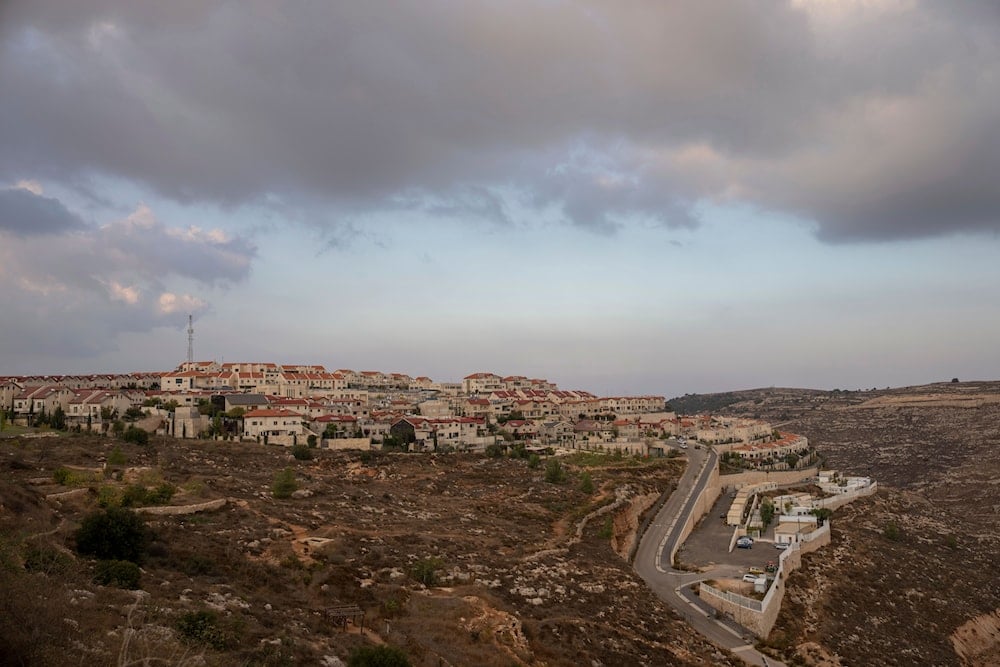US sanctions companies that build settlements in occupied West Bank
The Biden administration sanctions companies in the occupied West Bank involved in building illegal settlements, marking a significant expansion of US sanctions on settlement activities.
-

A general view of the West Bank Jewish settlement of Efrat on November 12, 2024. (AP)
On Monday, the Biden administration imposed sanctions on three Israeli private companies involved in constructing settlements in the Israeli-occupied West Bank.
According to Axios, this move marks a significant expansion of US sanctions against illegal settlement activities. It is the first time sanctions have been placed on private construction firms that facilitate illegal settlement expansion
That said, the Israeli settler lobby, along with the Netanyahu government, is now urging President-elect Trump to overturn President Biden’s executive order addressing settler violence and to lift all sanctions implemented over the past ten months.
Reversing these sanctions could serve as one of Trump's initial foreign policy actions.
It is worth mentioning that rightwing Israeli settlers and nationalist Zionists have expressed enthusiastic support for nominations in Trump's incoming administration, seeing it as an unprecedented chance to expand the Israeli presence in the occupied territories and effectively end any possibility of a Palestinian state, The Guardian reported Sunday.
Trump's nomination of pro-settlement officials is viewed by some as a "dream team" that could significantly reshape the region, with many activists calling it a "unique and special opportunity" for "Israel".
US Treasury sanctions Amana
On Monday, the Departments of Treasury and State announced new sanctions on Amana, a private company heavily involved in expanding settlements and establishing illegal outposts in the West Bank. Sanctions were also imposed on the private construction companies Binyanei Bar Amena and Eyal Hari Yehuda for their roles in supporting settlement activity in the West Bank.
In a statement, State Department spokesman Matthew Miller said that Amana was the largest organization involved in the settlement and illegal outpost development. He said that the sanctioned firms were directly engaged in the dispossession of private land owned by Palestinians in support of settlers.
Miller stressed that "We once again call on the Government of Israel to take action and hold accountable those responsible for or complicit in violence, forced displacement, and the dispossession of private land."
According to Axios, the Treasury Department issued a license allowing a winding-down period for financial transactions with the sanctioned companies, which must be completed by January 10. This applies to those who owe money to the companies or are owed money by them.
The winding down period ends 10 days before Trump takes office.
The Treasury and State Departments also sanctioned three individuals: Shabtai Koshlevsky for his involvement with the Hashomer Yosh organization, which was sanctioned months ago; Itamar Yehuda Levi for his role in the Eyal Hari Yehuda construction company; and Zohar Sabah, who, according to Miller, was involved in threats and acts of violence against Palestinians.

 3 Min Read
3 Min Read










